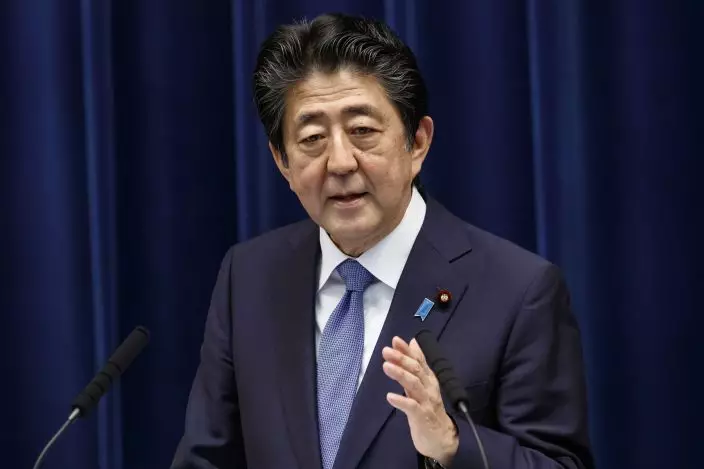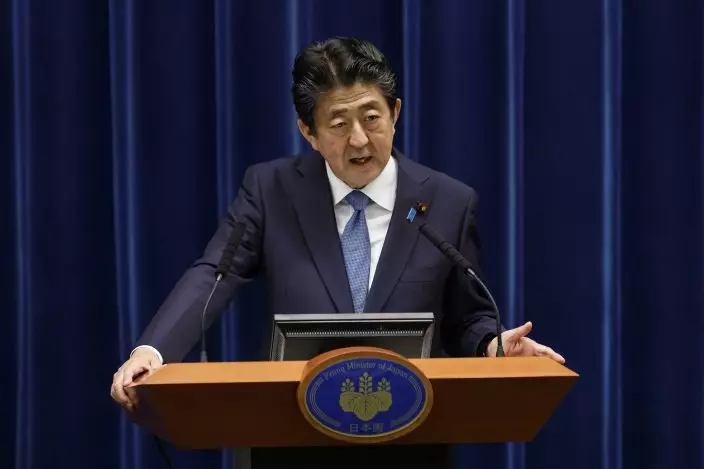Japanese Prime Minister Shinzo Abe said Thursday that his country needs to bolster its security posture amid threats from North Korea and should consider acquiring preemptive strike capability after having to scrap the planned deployment of two new land-based missile defense systems.
Abe said he wants to redefine the meaning of deterrence in the face of the threat from North Korea and its advancement in missile technology.
“We should renew our discussion of adequate deterrence we need, considering North Korea’s missile technology that has advanced since the time we introduced our missile defense systems,” he said.

Japan's Prime Minister Shinzo Abe speaks during a press conference at the prime minister's official residence, Thursday, June 18, 2020, in Tokyo. Abe said Thursday that he regretted the arrest of his former justice minister and the minister's lawmaker wife over allegations they engaged in vote buying during last year's election, and that he takes the public criticism seriously. (Rodrigo Reyes MarinPool Photo via AP)
Abe said that should include the capability to conduct preemptive strikes within the limitations set by the country's pacifist constitution.
"The question is if we should stay within the boundary when enemy capability is dramatically advancing,” Abe said.
Abe has long pushed to amend Article 9 of Japan's post-World War II U.S.-drafted constitution, which renounced war and the use of force as a means of settling international disputes and has been interpreted as limiting the country's armed forces to acting only in self-defense. Abe in 2015 reinterpreted Article 9 to allow self-defense to also include right to fight back for its ally, the U.S. in case of enemy attack.

Japan's Prime Minister Shinzo Abe speaks during a press conference at the prime minister's official residence, Thursday, June 18, 2020, in Tokyo. Abe said Thursday that he regretted the arrest of his former justice minister and the minister's lawmaker wife over allegations they engaged in vote buying during last year's election, and that he takes the public criticism seriously. (Rodrigo Reyes MarinPool Photo via AP)
Abe's comments come just days after Japan's Defense Ministry announced that it would “stop the deployment process” of two land-based Aegis Ashore missile defense systems after it was found that the safety of one of the planned host communities could not be ensured without a hardware redesign that would be too time consuming and costly.
Defense officials had said the two Aegis Ashore units could cover Japan entirely. The country’s current missile defenses consist of Aegis-equipped destroyers at sea and Patriot missiles on land.
After being on the back burner in the ruling party for decades, the possibility of gaining preemptive strike capabilities and deploying cruise missiles were proposed to Abe's government by his party’s missile defense panel in 2017.
Abe had since largely avoided the highly divisive topic after seeing his support ratings plunge amid a series of political scandals.
Abe said Thursday that it's time to discuss it again as tensions escalate on the Korean Peninsula.
Follow Mari Yamaguchi on Twitter at https://www.twitter.com/mariyamaguchi


